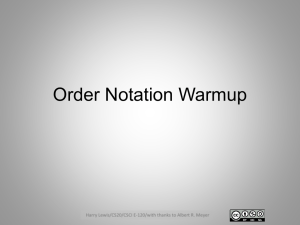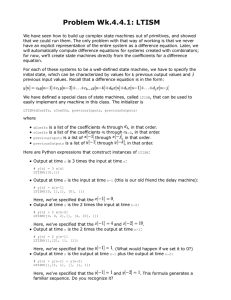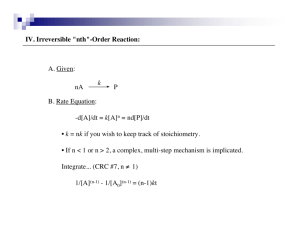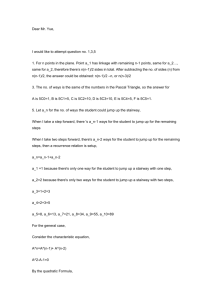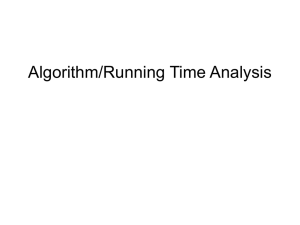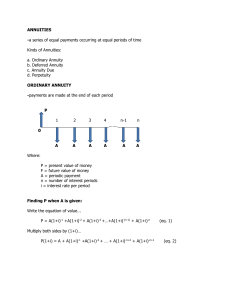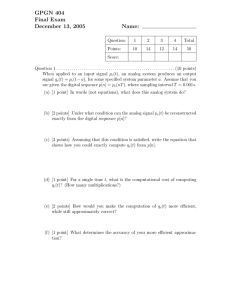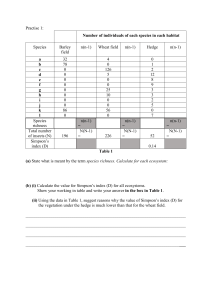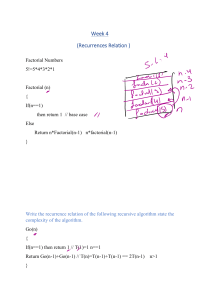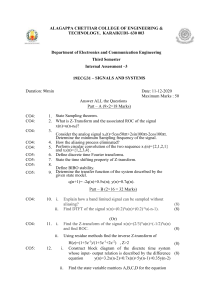九十五學年度 第二學期 數位訊號處理 期末考 學號 班級
advertisement
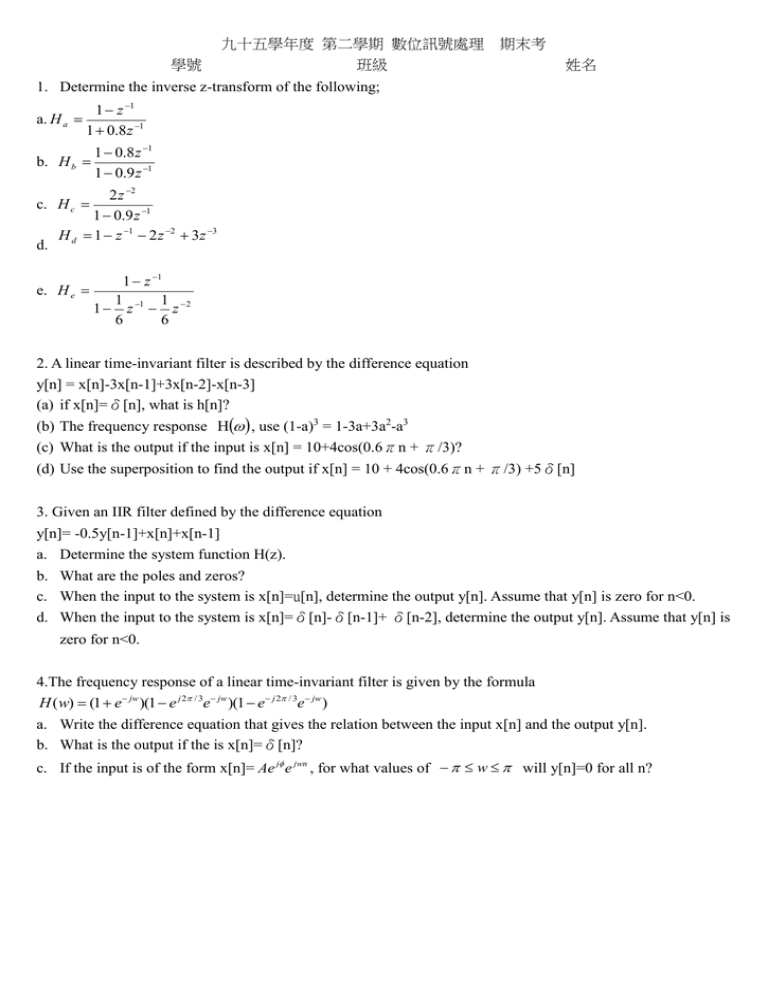
學號 九十五學年度 第二學期 數位訊號處理 班級 期末考 姓名 1. Determine the inverse z-transform of the following; a. H a 1 z 1 1 0.8 z 1 b. H b 1 0.8 z 1 1 0.9 z 1 2 z 2 1 0.9 z 1 H d 1 z 1 2 z 2 3z 3 c. H c d. e. H e 1 z 1 1 1 1 z 1 z 2 6 6 2. A linear time-invariant filter is described by the difference equation y[n] = x[n]-3x[n-1]+3x[n-2]-x[n-3] (a) if x[n]=δ[n], what is h[n]? (b) The frequency response , use (1-a)3 = 1-3a+3a2-a3 (c) What is the output if the input is x[n] = 10+4cos(0.6πn + π/3)? (d) Use the superposition to find the output if x[n] = 10 + 4cos(0.6πn + π/3) +5δ[n] 3. Given an IIR filter defined by the difference equation y[n]= -0.5y[n-1]+x[n]+x[n-1] a. Determine the system function H(z). b. What are the poles and zeros? c. When the input to the system is x[n]=u[n], determine the output y[n]. Assume that y[n] is zero for n<0. d. When the input to the system is x[n]=δ[n]-δ[n-1]+ δ[n-2], determine the output y[n]. Assume that y[n] is zero for n<0. 4.The frequency response of a linear time-invariant filter is given by the formula H ( w) (1 e jw )(1 e j 2 / 3e jw )(1 e j 2 / 3e jw ) a. Write the difference equation that gives the relation between the input x[n] and the output y[n]. b. What is the output if the is x[n]=δ[n]? c. If the input is of the form x[n]= Ae j e jwn , for what values of w will y[n]=0 for all n?
